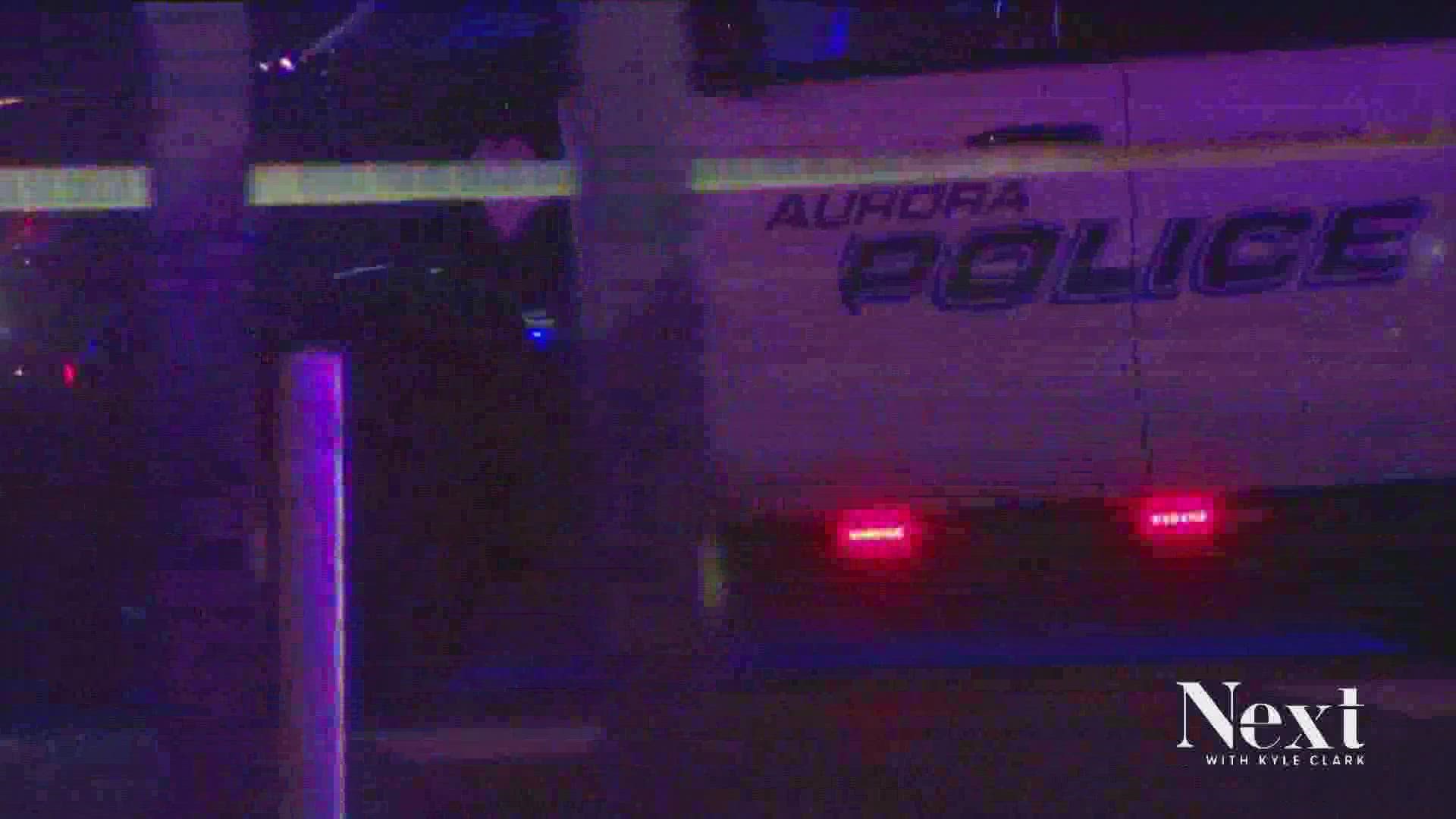AURORA, Colo. — Aurora’s Crisis Response Team is supposed to dispatch a police officer and clinician to people having mental health emergencies.
Now, it's likely the program will remain without any full-time clinicians for several more months. The Crisis Response Team has already been without any full-time mental health clinicians for a month.
The organization that provides the clinicians to work with the officers, Aurora Mental Health Center, said the City of Aurora is ending its agreement with them at the end of the year, making it very difficult to hire more clinicians before that.
"I think the most important reason that we do not have clinicians right now is that the city decided to put this contract back out for bid. The way that occurred is that we found out through our line clinicians," Kelly Phillips-Henry, CEO of Aurora Mental Health Center, said. "We certainly would’ve wanted to have been the partner selected to work with the response team. Unfortunately the city informed us two weeks ago that they made a different decision and will be going with a different provider."
Aurora Mental Health Center helped start the two co-responder programs in Aurora and provides clinicians for both. Phillips-Henry said her clinicians were told by officers they work with that they’ll likely need to look for new jobs before she even found out the city could be contracting with someone else two weeks ago. Now, she thinks it’ll be impossible to hire new clinicians in the next couple of months.
"We hold this contract with them until December 31. Unfortunately, we will not be able to recruit for these positions knowing that the contract is about to change hands," Phillips-Henry said. "We are working with the department to figure out how best we can support during this interim time."
In a statement, the City of Aurora responded, "Aurora Mental Health remains a very valuable partner with the city on many fronts and the agreement you reference remains valid through the end of the year, pending the conclusion of a Request for Proposals (RFP) process the city initiated in August."
The director of the Crisis Response Team, who holds a managerial role with the city, is trained as a clinician and can respond to calls when available. The City of Aurora told 9News that’s about one day a week. She oversees multiple programs and is not working full-time as a clinician.
The City of Aurora is now moving resources usually devoted to other calls to pick up the demand. The city’s Mobile Response Team, another co-responder program separate from the Crisis Response Team, usually responds to low-intensity calls for service involving mental health to allow police officers to focus on crime.
Now, the clinician and paramedic riding in the Mobile Response Team van are being called by police officers more often to respond to different types of mental health emergencies.
The Crisis Response Team has not been fully staffed since 2017, according to the City of Aurora.
An audit released by the City of Aurora in June laid out a long list of problems with the program.
Aurora911 doesn’t have protocols to determine whether a mental health crisis is occurring and how to handle those calls. Aurora Police “lacks strong policies governing interactions with individuals with mental health disorders,” the audit states. That’s before the program dropped down to zero clinicians.
The audit manager who wrote the report determined they could not determine the effectiveness of the program because the city does not keep track of the pertinent data needed.
"There is no citywide data available that shows how many mental health calls for service were received or responded to," the audit determined.
The City of Aurora referred 9News to its responses in the audit report when asked to answer specific questions about the reports findings and declined an interview.
"It’s probably overdue that we look at appropriate funding instead of trying to braid this together through grants," Phillips-Henry said. "We have been able to limp along, but we certainly aren’t running with the impact we could be having in this city. It’s time for a change in terms of how we think of funding this."
9News reached out to nearly than two dozen police departments and sheriff's offices around the state to see if any other organizations are dealing with staffing shortages for mental health clinicians.
Of the dozen or so departments that responded that also have co-responder programs, no others are facing a shortage of clinicians as severe as Aurora.
"I think we’re disappointed that this was the outcome. Our community deserves better," Phillips-Henry said. "They deserve to have the outreach available, the right type of intervention available, and what this does is leave a gap in our community in the interim."
SUGGESTED VIDEOS:

